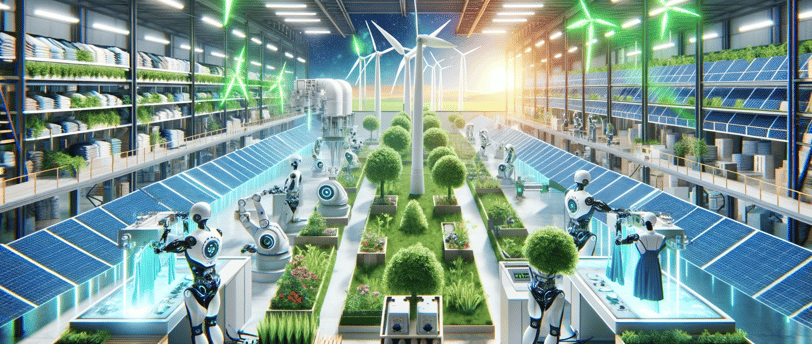Beyond Fast Fashion: AI for Sustainable and Ethical Clothing Production
12/19/20233 min read


The Environmental Impact of Fast Fashion
Fast fashion has become a global phenomenon, with clothing brands producing cheap and trendy clothes at an unprecedented rate. While this may seem like a win for consumers, the environmental impact of fast fashion is alarming. The fashion industry is the second-largest polluter in the world, contributing to water pollution, greenhouse gas emissions, and excessive waste.
As consumers become more aware of the negative consequences of fast fashion, there is a growing demand for sustainable and ethical clothing options. People want to support brands that prioritize responsible practices and reduce their environmental footprint. This is where artificial intelligence (AI) can play a crucial role.
The Role of AI in Sustainable Clothing Production
AI has the potential to revolutionize the fashion industry by enabling more sustainable and ethical clothing production. Here are some ways in which AI can make a positive impact:
1. Supply Chain Optimization
AI algorithms can analyze vast amounts of data to optimize the supply chain and reduce waste. By predicting demand accurately, AI can help brands produce the right amount of clothing, minimizing overproduction and excess inventory. This not only reduces the environmental impact but also improves the overall efficiency of the production process.
2. Material Innovation
AI can aid in the development of sustainable materials by simulating and testing various combinations. By using AI algorithms, researchers can identify new materials that are eco-friendly, durable, and cost-effective. This opens up possibilities for creating clothing that is not only fashionable but also environmentally responsible.
3. Design Assistance
AI can assist designers in creating sustainable and ethical clothing by providing insights and suggestions. By analyzing consumer preferences and trends, AI algorithms can help designers make informed decisions about fabric choices, color palettes, and styles. This ensures that the final product aligns with both fashion trends and responsible practices.
4. Waste Reduction
AI can help minimize waste throughout the production process. By analyzing data, AI algorithms can identify areas where waste is generated and suggest improvements. For example, AI can optimize pattern cutting to reduce fabric waste or recommend recycling options for unused materials.
The Benefits of AI in Ethical Clothing Production
Integrating AI into sustainable and ethical clothing production offers several benefits:
1. Reduced Environmental Footprint
By optimizing the supply chain, using sustainable materials, and minimizing waste, AI helps reduce the fashion industry's environmental impact. This shift towards responsible practices is essential for preserving our planet for future generations.
2. Improved Efficiency and Cost-Effectiveness
AI streamlines various aspects of the production process, making it more efficient and cost-effective. By accurately predicting demand and optimizing resources, brands can save money while producing clothing in a sustainable manner.
3. Enhanced Consumer Trust
Consumers are increasingly conscious of the environmental and ethical implications of their purchasing decisions. Brands that embrace AI for sustainable clothing production gain the trust and loyalty of these consumers. By transparently communicating their responsible practices, brands can build strong relationships with their customers.
4. Innovation and Creativity
AI opens up new possibilities for innovation and creativity in fashion. By assisting designers and suggesting alternative materials, AI encourages experimentation and the creation of unique, sustainable designs. This fosters a more diverse and exciting fashion industry.
The Future of Sustainable and Ethical Clothing Production
As the demand for sustainable and ethical clothing continues to rise, AI will undoubtedly play a crucial role in shaping the future of the fashion industry. By leveraging the power of AI, brands can move beyond the fast fashion model and embrace responsible practices.
However, it's important to note that AI alone cannot solve all the challenges faced by the fashion industry. Collaboration between technology, fashion experts, and policymakers is essential to create a truly sustainable and ethical clothing production ecosystem.
By harnessing the potential of AI and combining it with human creativity and expertise, we can build a fashion industry that not only satisfies our desire for trendy clothes but also respects the environment and the people involved in the production process.
It's time to go beyond fast fashion and embrace a future where sustainability and ethics are at the forefront of clothing production.
